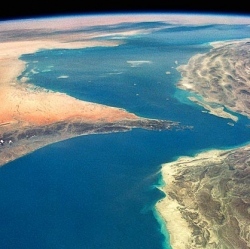
The ISS will play host to the first-ever sequencing of DNA in space. Astronaut Kate Rubins, a virologist who’s heading up to the ISS this month, will conduct the sequencing, in addition to over 250 experiments. DNA sequencing has been done in zero-G: NASA tried with success in a zero-G aircraft late last year.
Rubins told Scientific American that she’s interested to see what happens during sequencing in microgravity, what happens to the extracted DNA, whether bubbles form, and a slew of other questions.
"The first part of the experiment is more technology development: looking to see how this kind of sequencing technology behaves in microgravity. We don’t know if bubbles will form or how the sequencing reaction will work without gravity. The second part is, What happens to DNA in space?
Sequencing DNA on the ISS will enable NASA to see what happens to genetic material in space in real time, rather than looking at a snapshot of DNA before launch and another snapshot of DNA after launch and filling in the blanks. We can also look at epigenetic modifications to the genome caused by radiation, sleep changes, and so on."
